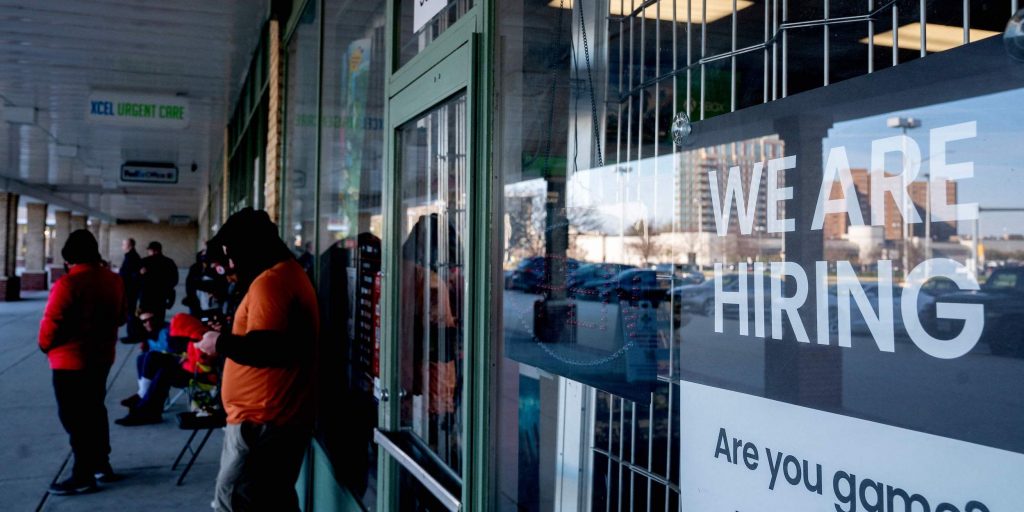- The US private sector created 128,000 new jobs in May, according to ADP's monthly hiring report.
- That fell short of the median forecast for 300,000 new jobs and April's gain of 202,000 payrolls.
- The report shows hiring slowing as the Fed aggressively raised interest rates and inflation remained elevated.
The US private sector added fewer jobs than expected in May as the Federal Reserve ramped up its effort to slow the economy and cool inflation.
Private-sector firms added 128,000 payrolls last month, ADP said Thursday in its monthly employment report. The median estimate from economists surveyed by Bloomberg saw an increase of 300,000 private payrolls. The May sum marks a significant deceleration from the April gain, which was revised to 202,000 from 247,000.
The one-month gain was also the smallest of the pandemic recovery. Job growth has eased massively throughout 2022 amid a broader slowdown in economic growth and lingering pressures from the labor shortage.
"Under a backdrop of a tight labor market and elevated inflation, monthly job gains are closer to pre-pandemic levels," Nela Richardson, chief economist at ADP, said in the report.
May saw inflation continue to plague the economy's recovery. Gas prices ripped to new records throughout the month, placing more pressure on households already hammered by soaring costs. The war in Ukraine continued to roil supply chains. While some signs hinted that March would represent peak inflation, improvement has been slow.
The persistence of the nationwide inflation problem led the Fed to escalate its fight against surging prices. The central bank raised interest rates by half of a percentage point in May, doubling the size of its typical hikes. The more aggressive strategy aims to put more downward pressure on inflation, but it also comes with a tradeoff.
Higher rates tend to slow consumer spending and, in turn, overall growth. After holding rates at record lows throughout the pandemic, the Fed is effectively pressing the brakes on the hiring recovery in hopes of curbing inflation.
Some pockets of the labor market even saw payrolls decline through the month. Small businesses — those with fewer than 50 employees — shed 91,000 private payrolls in May, with the bulk of the decline coming from firms with fewer than 20 workers. Businesses with more than 500 employees added 122,000 jobs. Medium-sized businesses — those with between 50 and 499 workers — took on 97,000 payrolls.
The education and health services sector saw the biggest increase in May, with such firms adding 46,000 jobs. Professional and business services followed with an increase of 23,000 payrolls, and manufacturers came close behind with a 22,000-payroll uptick.
The information and construction sectors both lost 2,000 payrolls through the month, echoing prior ADP readings. The former was among the sectors to see the smallest job losses at the beginning of the pandemic, meaning information firms had a much smaller recovery to stage over the past two years. Construction firms, meanwhile, have been hammered by rising building costs and supply-chain disruptions, leaving them with additional hiring hurdles.
The ADP report previews the government's own nonfarm payrolls report that's set to be published on Friday. Economists anticipate an increase of 325,000 jobs through last month, which would mark the smallest increase since April 2021. They also see the unemployment rate falling to 3.5%, which would match the five-decade low seen before the pandemic. Though the ADP report and the government's counts have diverged throughout the pandemic, the Thursday reading hints that May job creation could fall well short of economists' expectations and show the hiring recovery slowing dramatically.

